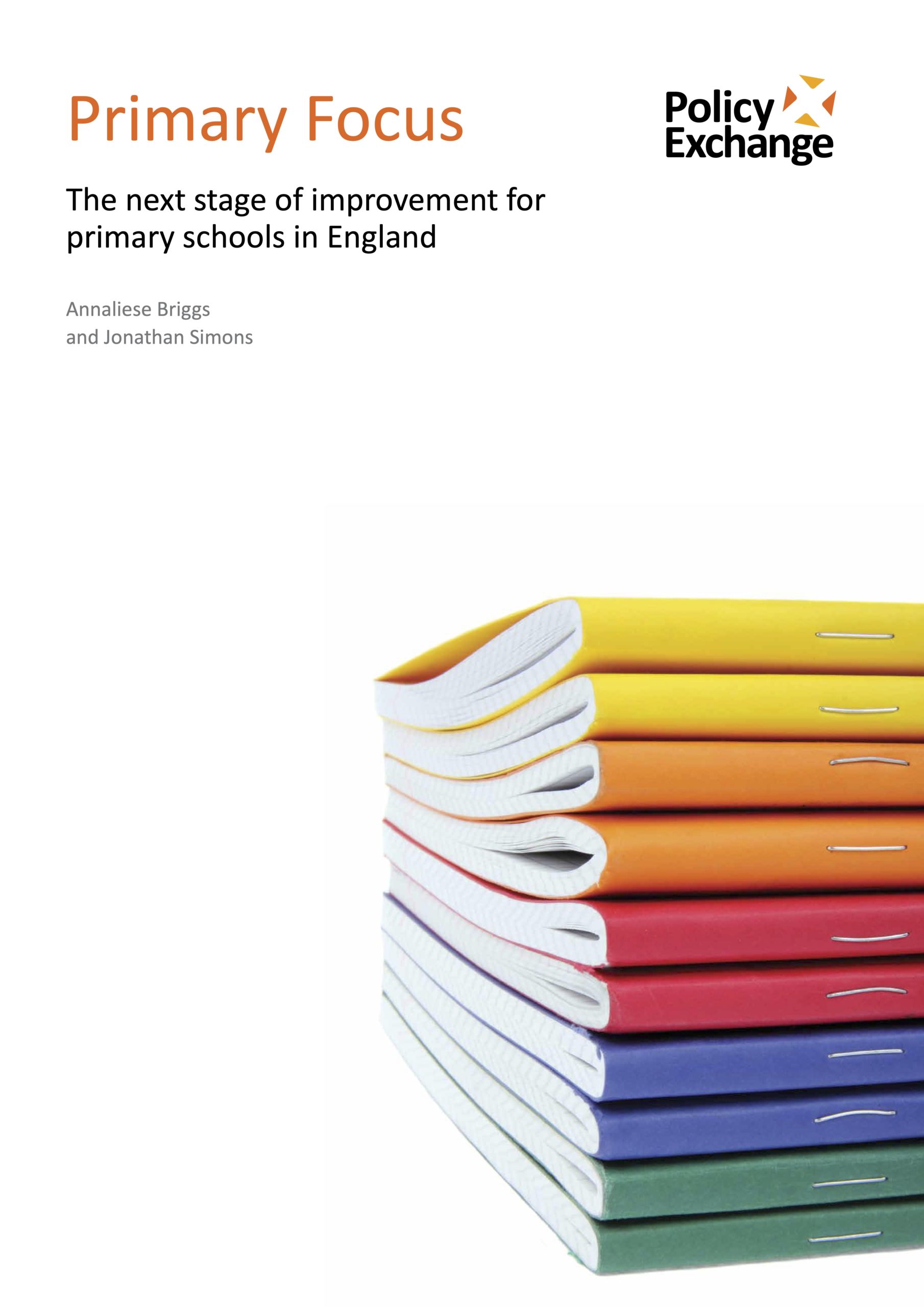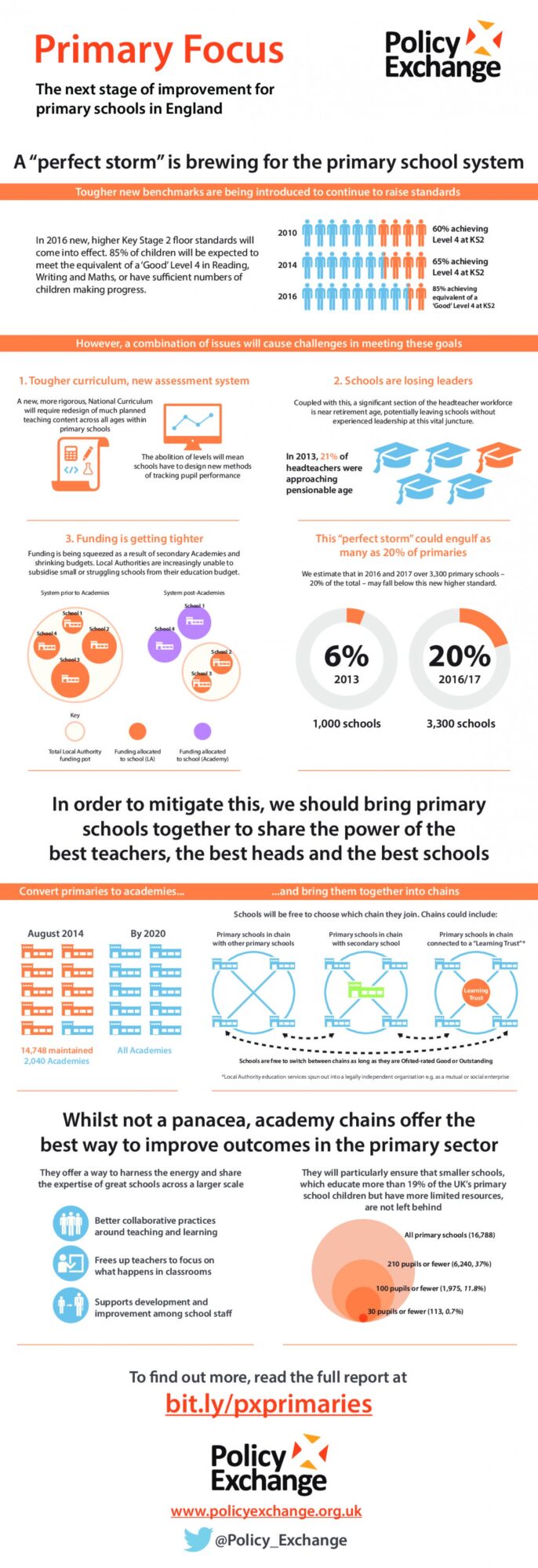
Primary Focus: The next stage of improvement for primary schools in England
Over 3,000 primary schools (20%) could fall below the government’s tough new minimum standards in reading and writing and maths in 2016. A “perfect storm” of challenges will see a number of head teachers retire, a continued drop off in local authority funding for primaries and the introduction of a new national curriculum and assessment systems, putting more pressure on teachers.
Infographic
Primary Focus: The next stage of improvement for primary schools in England
Primary Focus says the most effective way to ensure teachers and schools have the capability and capacity to cope with these challenges is to convert all primary schools into Academies, and then ask each school to join an Academy ‘chain’ by 2020. Academies have been enthusiastically taken up in the secondary sector (56% of all schools) but have been slower to take off among primary schools (11% take up). The report also says that Local Authorities should be encouraged to set up and run their own chains.
While acknowledging that Academy status is not a panacea in itself, the greater scale of a chain represents the best way to allow teachers and heads to focus on teaching and learning in the classroom rather than on form filling and other more administrative tasks. This will particularly benefit the significant number of small primary schools in England – there are currently 1,975 schools with fewer than 100 pupils and 113 schools with fewer than 30 pupils.
The paper highlights how the primary sector has largely improved over the past decade or so, with provisional results for 2014 showing a continuing rise in standards in numeracy and literacy among 11 year olds. Despite these positive results, too many pupils do not leave primary school ready to move on and succeed at secondary. The Coalition has responded by introducing important reforms, including a new national curriculum and asking schools to take responsibility for their own ways of tracking pupil performance and progress. However, these will place challenges on primary schools, especially smaller ones, to manage. And when combined with a continued squeeze on funding to Local Authorities to support primary schools and over a fifth of primary heads approaching retirement age, 1 in 5 schools could fail to meet the government’s newly created floor standards by 2016.
Other recommendations include:
All remaining local authority secondary schools should also become Academies over the same time period, as should special schools. While these schools would not be obliged to join chains, they should be encouraged to partner with others as part of a wider move towards a school led, self improving system.
Individual schools should, for the first time, be able to switch between chains providing they are rated Good or Outstanding and given a year’s notice. This will allow for greater competition and fluidity in the market, and prevent any academy chain building a local monopoly of offering a poor service for a long period of time.
The role of Regional School Commissioners or Directors of School Standards should be beefed up. They should have responsibility for overseeing and approving the emergence of these new chains as well as existing ones. They should also be able to split chains up and move schools in the case of underperformance as the DfE currently does now.
Primary chains should think about how they can work closely with early years providers to support continued improvements in quality in the early years sector. Greater co-operation offers the chance of more effective working between early years settings and graduate teachers in the primary phase, as well as co-ordination on curriculum, and the opportunity for more location of early years settings within schools.

Testimonials
|
|
Association of School and College Leaders:
“This is an important contribution to the discussion about the future of primary schools in England. We need to have the debate about what structural forms will ensure sustainability and improvement in the coming years. The number and size of primary schools means that different structures will be needed as schools become more autonomous.
“Academisation is not a panacea, but we must consider solutions that build capacity and allow schools to work together, especially around improving teaching and learning. Allowing local authorities to ‘spin off’ their own groups as learning trusts is an idea that merits further consideration.
“As Sir David Carter says in his introduction, the report paints a picture of the future landscape that will be challenging. ASCL’s blueprint for a self-improving system calls on all schools to stay in control of their destiny. Now is the time for the education community to step forward in a leadership role, to confront the challenges we face and find the solutions.”


